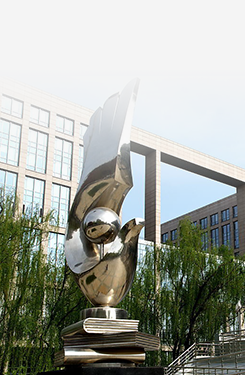Topic:Fairness Meets Efficiency: Implementing Soft-Stable Matching for Appointment-Based Metro Access
Time: 15:00PM – 16:30PM, Nov. 4, 2025
Location: Room A1148, New Main Building
Guest: Yin Jiateng is a Professor at the School of Systems Science, Beijing Jiaotong University, and Director of the Department of Big Data and Intelligent Computing Center. His main research directions include rail transit operation optimization and management, large models and intelligent computing, etc.
Abstract:
Public transit systems are essential for ensuring equitable urban mobility, yet rising congestion and limited accessibility continue to marginalize vulnerable groups such as seniors, pregnant women, and individuals with disabilities. Addressing this societal challenge requires a mechanism that balances fairness in access with system-wide efficiency. We introduce a novel Appoint-to-Go (AG) service that enables passengers to pre-book entry slots at metro stations, thereby alleviating crowding while ensuring equitable access for priority users. We formulate the appointment allocation as a soft-stable matching problem integrated with network flow constraints. We introduce the concept of soft stability—defined as the convex hull of all stable allocations—which relaxes strict fairness to enhance efficiency while preserving aggregate equity. Polyhedral analysis yields a compact linear formulation that bridges fairness-driven matching theory with large-scale optimization.
Using field implementation data from the Nanchang Metro system, we evaluate the system’s real-world impact. For priority passengers such as seniors, pregnant women, and individuals with disabilities, the introduction of the AG mechanism substantially improved accessibility satisfaction and reshaped travel behavior, encouraging more flexible time-slot choices under capacity pressure. For regular passengers, reallocating one of six gates to the AG system did not increase congestion; regression analysis even suggests a slight improvement in overall flow efficiency. While the appointment mechanism did not significantly alter slot-level inequality, the negative coefficients indicate a modest smoothing effect as some passengers shifted toward less congested intervals. Overall, the AG mechanism operates effectively in real-world metro environments, fosters behavioral adaptation, and delivers tangible social benefits—enhancing both fairness and efficiency in large-scale urban transit management.

